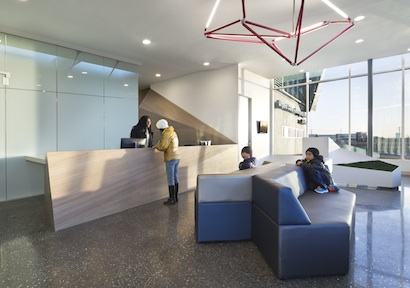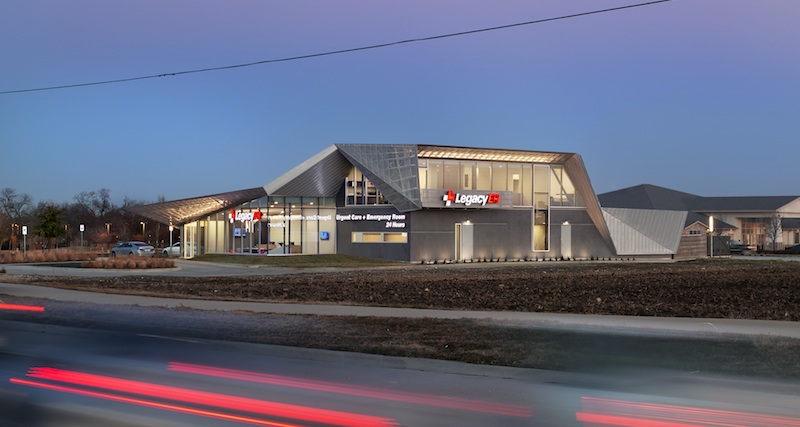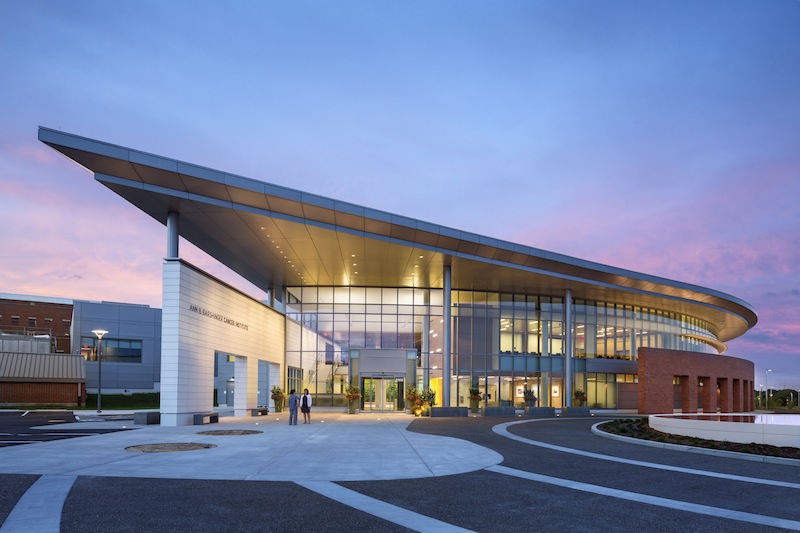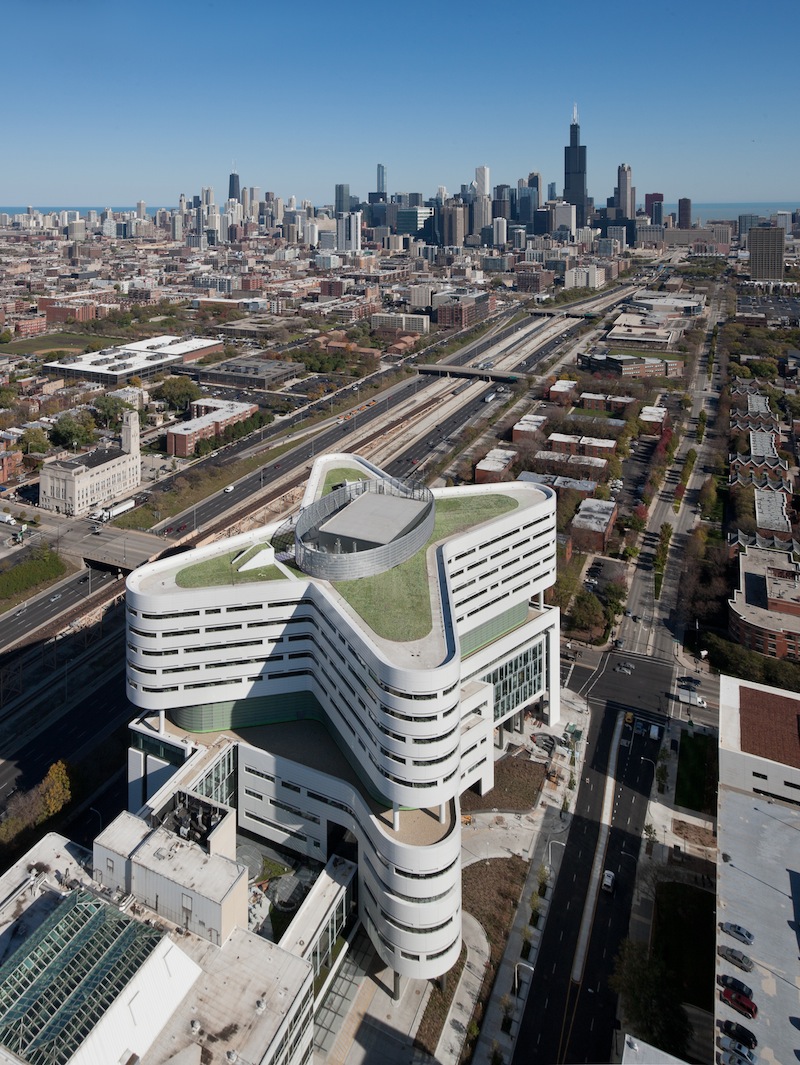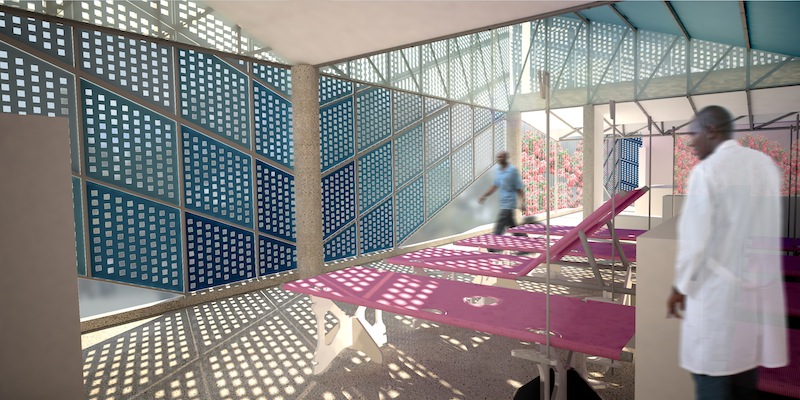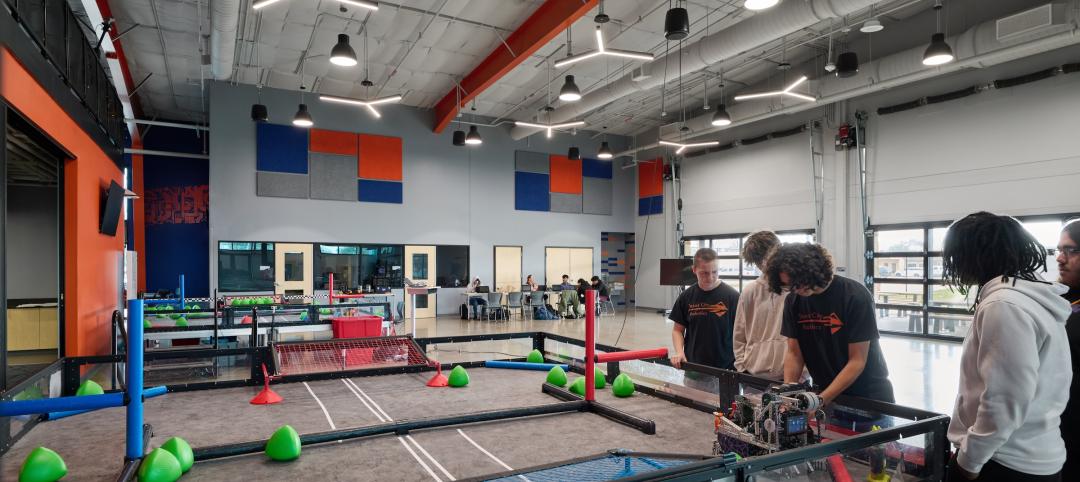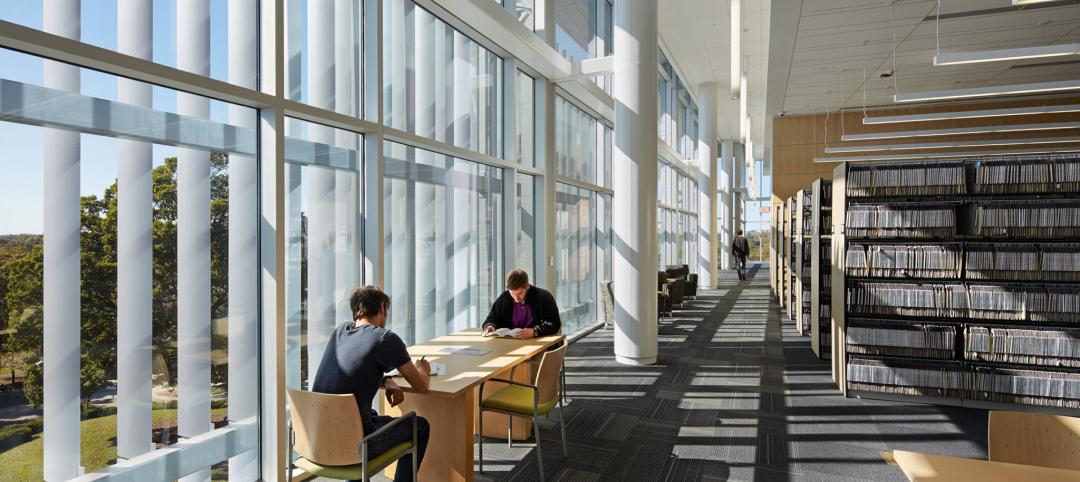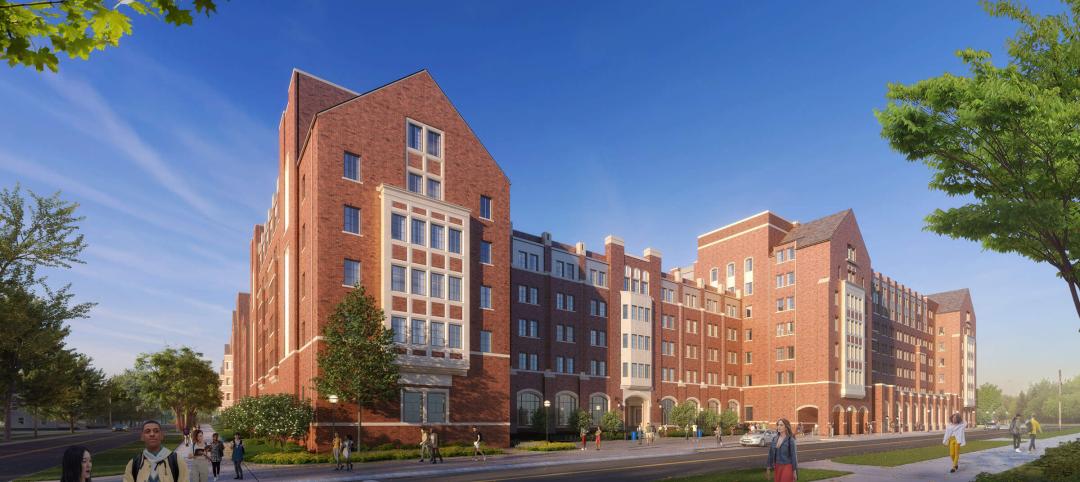The American Institute of Architects Academy of Architecture for Health has selected the recipients of the AIA National Healthcare Design Awards program. The AIA Healthcare Awards program showcases the best of healthcare building design and healthcare design-oriented research.
Projects exhibit conceptual strengths that solve aesthetic, civic, urban, and social concerns as well as the requisite functional and sustainability concerns of a hospital.
Recipients were selected in four different categories:
Category A: Built, Less than $25 million in construction cost
Category B: Built, More than $25 million in construction cost
Category C: Unbuilt, Must be commissioned for compensation by a client with the authority and intention to build
Category D: Innovations in Planning and Design Research, Built and Unbuilt
Jurors for the 2014 National Healthcare Design Awards include: Eric Goodfriend, AIA (Chair), Mahlum; Roger Call, AIA, Herman Miller for Healthcare; Jim Lennon, Lennon Associates; James C. Lord II, AIA, KGA Architecture; Mark Patterson, AIA, SmithGroupJJR; Mark Tortorich, FAIA, Stanford University and Shane Williams, AIA, Array Architects.
Category A
Legacy ER – Allen; Allen, Texas
5G Studio Collaborative
Legacy ER operates a hybrid program offering urgent and 24/7 state-licensed emergency care services within a freestanding building. Conceptualized as a potent reflection of the organization’s identity, the architecture captured the duality of the emergency medical professionals' character, projecting outwardly the knowledge, skill, precision, and decisiveness necessary for the competent practice of emergency medicine and expressing inwardly the gentle, empathic, and humanistic qualities of the persons beneath the robe, realized simply through montaging sharply folded exterior robe of zinc and softly sculpted interior plastered planes. Points of admission of natural daylight and views create apertures that elucidate intersecting tectonic moments.
Lightwell: Greater Boston Orthodontics; Waltham, Massachusetts
Merge Architects
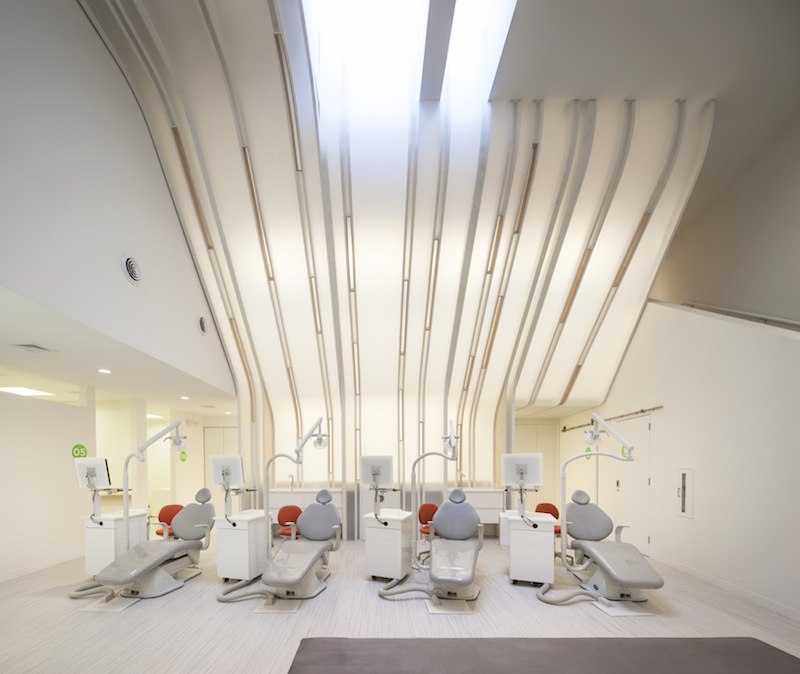
Photo: John Horner Photography
A hundred-year-old storefront and warehouse on Main Street in Waltham was gutted, creating an open plan orthodontic clinic – including reception and treatment areas flanked by semi-private offices, toothbrushing stations, exam rooms, and a staff coffee area. The double-height treatment space is framed by an 18-foot-tall backlit translucent wall curving down in section to frame and light the open treatment area. CNC-cut plywood ribs skinned with thin polycarbonate panels funnel light from skylights above. The front waiting space is defined by a custom seating area and digital media bar, wool felt applied to walls, a custom light pendant, and bright custom wall graphics to provide wayfinding.
Category B
Lancaster General Health Ann B. Barshinger Cancer Institute; Lancaster, Pennsylvania
Ballinger
The new 100,000 square foot Ann B. Barshinger Cancer Institute is developed around a progressive model for cancer care and employs an interdisciplinary and patient-centric approach. Focused on regeneration and reconnection to living systems, the building’s radial form derives from an existing elevated, curvilinear arrival / parking court which has become a central courtyard healing garden. The expanded oncology program is arrayed around the garden on two levels. Glazed skins and multiple points of access provide a continuous dialogue between interior and exterior, creating a visually open environment that reduces anxiety and stress for patients and their families.
Mount Sinai Hess Center for Science and Medicine; New York City
Skidmore, Owings & Merrill LLP
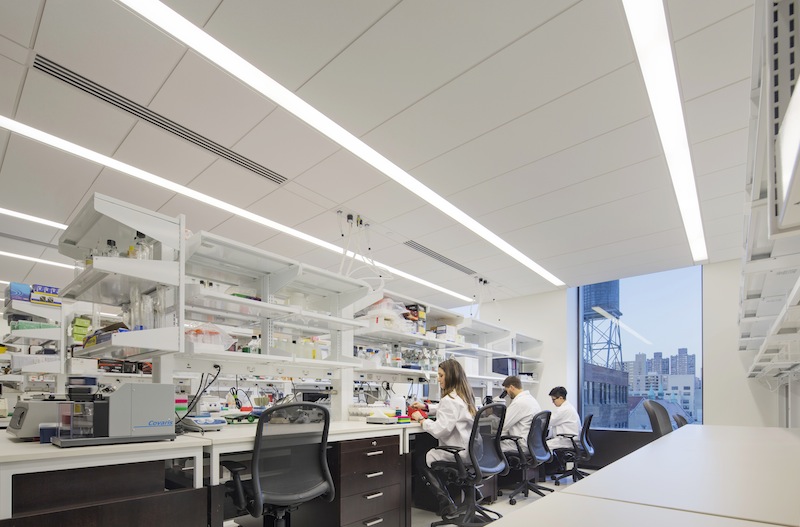
Photo © Eduard Huebrer / Archphoto
Envisioned as a place of discovery and healing, the striking Mount Sinai Hess Center for Science and Medicine is shaped by its translational research mission and urban context. Located in Upper Manhattan, the center places researchers, clinicians, educators, and patients in an integrated environment with state-of-the-art technology. The 420,000 square foot facility is specifically designed to foster multi-disciplinary interaction through a network of formal and informal settings. The primary design objective was to craft a flexible environment that would be inspiring and supportive for employees while gracious and dignified for patients and their families. Inside, natural light and a warm, simple material palette puts cancer patients at ease.
Rush University Medical Center New Hospital Tower; Chicago
Perkins+Will
As part of Rush University Medical Center’s 10-year, $1 billion Campus Transformation Project, Perkins+Will planned and designed a new 840,000 square foot state-of-the-art hospital building. Crowned by a butterfly-shaped bed tower designed to minimize steps between staff and patients, the new hospital is comprised of 304 acute and critical care beds, 72 neonatal intensive care beds, and 10 labor and delivery beds. The emergency department contains one of the country’s few bioterrorism preparedness facilities, and is designed to handle large-scale health emergencies. The hospital is one of the largest in the world to be certified LEED Gold.
Category C
Children’s Hospital of Richmond Pavilion (CHoRP); Richmond, Virginia
HKS, Inc.
At the gateway to the medical campus, the Children’s Hospital of Richmond Pavilion consolidates existing pediatric clinics into a compact vertical urban pavilion. The facility is dedicated to providing comprehensive healthcare for children and adolescents and contains a surgery level, three levels of pediatric clinics, a faculty/research floor, and seven levels of parking. Adjacent to some of the city’s most important civic structures, the design establishes a signature identity that embodies VCU’s objective of becoming the region’s premier pediatric academic medical institution. Drawing inspiration from natural elements that are unique to the City of Richmond, the design is intrinsically tied to its location. Themes of sky, water, and forest bring nature to the heart of this urban campus.
Category D
Cincinnati Children's Family Pet Center; Cincinnati, Ohio
GBBN Architects
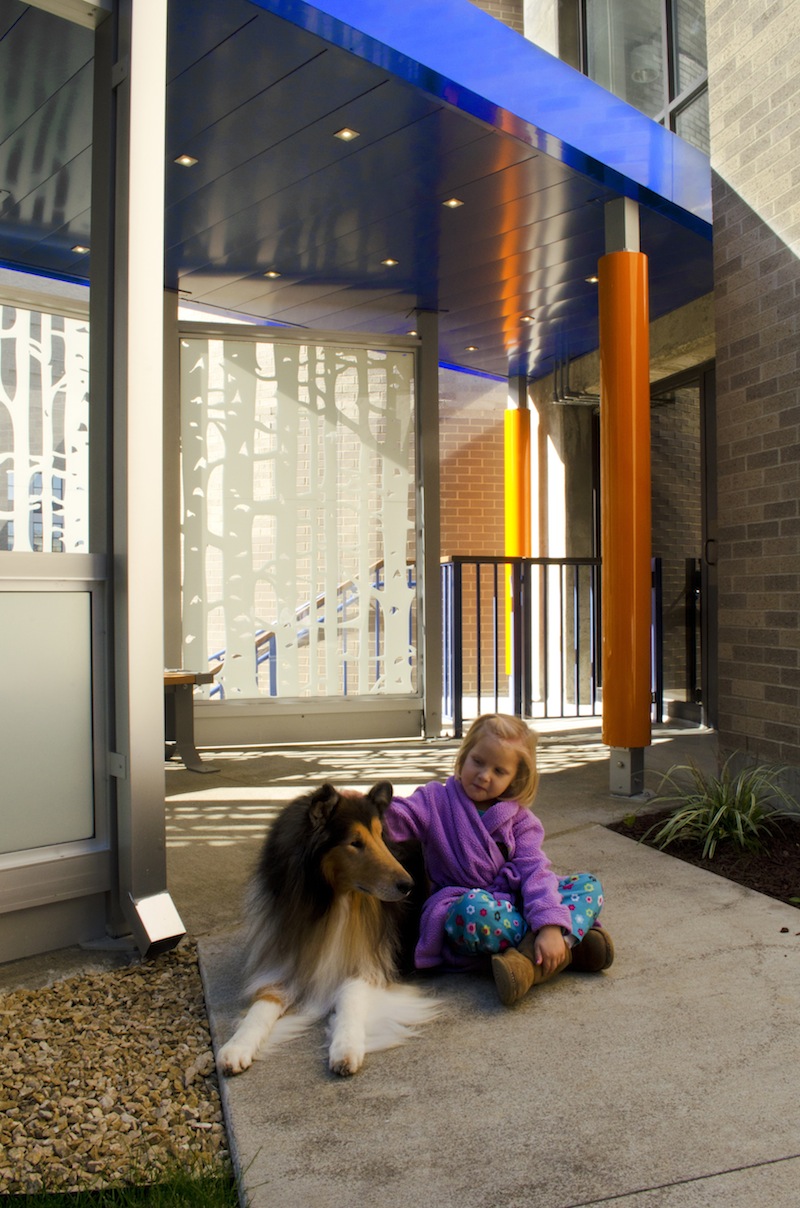
Courtesy Cincinnati Children's Hospital
The Family Pet Center expands the hospital’s pet therapy program with a 250-sf pavilion and lawn areas that accommodate patients whether on foot, in a wheelchair or on a stretcher. In this 8’ by 10’ enclosure, kids reunite with their own pets. Positive effects begin with anticipation days in advance, the visit itself, and the lingering effects of memories or storytelling afterwards. Based on research on the healing benefits of Animal Assisted Therapy (AAT), this pavilion addresses the medical needs of the children and the physical dynamics of pets. Especially for cancer patients, who deal with high levels of stress, pain, and long hospital stays, AAT contributes to recovery by improving the quality of life for patients.
GHESKIO Cholera Treatment Center (CTC); Port-au-Prince, Haiti
MASS Design Group
The first permanent facility in Port-au-Prince, the CTC provides an aggressive model for cholera treatment, while creating a healing space that promotes a dignified patient experience. Both the CTC’s layout and placement of amenities optimize staff and patient flow. The design tackles unique site conditions, including the lack of reliable piped water and lack of sewer system connection, by providing off-the-grid services. The roof collects rainwater, which is stored in cisterns, chlorinated, and then used for showers and sinks. The facility also decontaminates waste on-site and is designed to achieve 99.99% removal and inactivation of Cholera vibrio and other pathogenic organisms. The façade blends the use of the most advanced technology, using parametric modeling to optimize apertures for daylighting, ventilation, and privacy, with deploying analog techniques for local fabrication. The CTC will not only establish new standards for cholera treatment, but also new standards for quality construction in Haiti.
The video provides more information.
Building Better Builders from MASS Design Group on Vimeo.
Related Stories
K-12 Schools | Aug 8, 2024
New K-12 STEM center hosts robotics learning, competitions in Houston suburb
A new K-12 STEM Center in a Houston suburb is the venue for robotics learning and competitions along with education about other STEM subjects. An unused storage building was transformed into a lively space for students to immerse themselves in STEM subjects. Located in Texas City, the ISD Marathon STEM and Robotics Center is the first of its kind in the district.
Affordable Housing | Aug 7, 2024
The future of affordable housing may be modular, AI-driven, and made of mushrooms
Demolished in 1989, The Phoenix Ironworks Steel Factory left a five-acre hole in West Oakland, Calif. After sitting vacant for nearly three decades, the site will soon become utilized again in the form of 316 affordable housing units.
Architects | Aug 5, 2024
Mastering the art of project schedule: Expert insights on design and construction
We sat down with two experts in the design field, Ron Dick (Founding Partner and Architect) and Mike Niezer (COO and Architect), to talk about everything you need to know about the entire process.
University Buildings | Aug 1, 2024
UC Riverside’s student health center provides an environment on par with major medical centers
The University of California, Riverside's new Student Health and Counseling Center (SHCC) provides a holistic approach to wellness for students throughout the UC Riverside campus. Designed by HGA and delivered through a design-build partnership with Turner Construction Company, SHCC provides healthcare offerings in an environment on par with major medical centers.
Libraries | Aug 1, 2024
How current and future trends are shaping the libraries of tomorrow
Over the last few years, public libraries have transitioned from being buildings that only store and lend books to being fully featured community centers.
MFPRO+ News | Aug 1, 2024
Canada tries massive incentive program to spur new multifamily housing construction
Canada has taken the unprecedented step of offering billions in infrastructure funds to communities in return for eliminating single-family housing zoning.
Government Buildings | Aug 1, 2024
One of the country’s first all-electric fire stations will use no outside energy sources
Charlotte, N.C.’s new Fire Station #30 will be one of the country’s first all-electric fire stations, using no outside energy sources other than diesel fuel for one or two of the fire trucks. Multiple energy sources will power the station, including solar roof panels and geothermal wells. The two-story building features three truck bays, two fire poles, dispatch area, contamination room, and gear storage.
Contractors | Aug 1, 2024
Nonresidential construction spending decreased 0.2% in June
National nonresidential construction spending declined 0.2% in June, according to an Associated Builders and Contractors analysis of data published today by the U.S. Census Bureau. On a seasonally adjusted annualized basis, nonresidential spending totaled $1.21 trillion. Nonresidential construction has expanded 5.3% from a year ago.
Student Housing | Jul 31, 2024
The University of Michigan addresses a decades-long student housing shortage with a new housing-dining facility
The University of Michigan has faced a decades-long shortage of on-campus student housing. In a couple of years, the situation should significantly improve with the addition of a new residential community on Central Campus in Ann Arbor, Mich. The University of Michigan has engaged American Campus Communities in a public-private partnership to lead the development of the environmentally sustainable living-learning student community.
MFPRO+ New Projects | Jul 31, 2024
Shipping containers converted into attractive, affordable multifamily housing in L.A.
In the Watts neighborhood in Los Angeles, a new affordable multifamily housing project using shipping containers resulted in 24 micro-units for formerly unhoused residents. The containers were acquired from a nearby port and converted into housing units at a factory.


